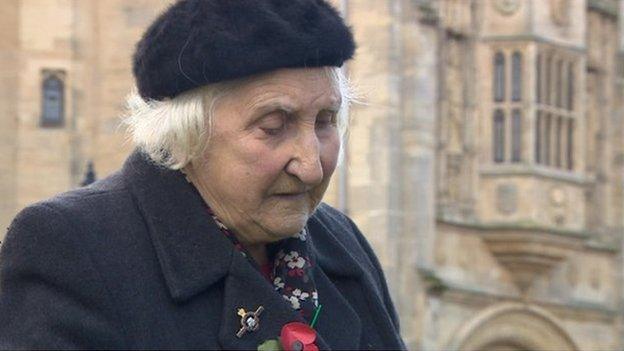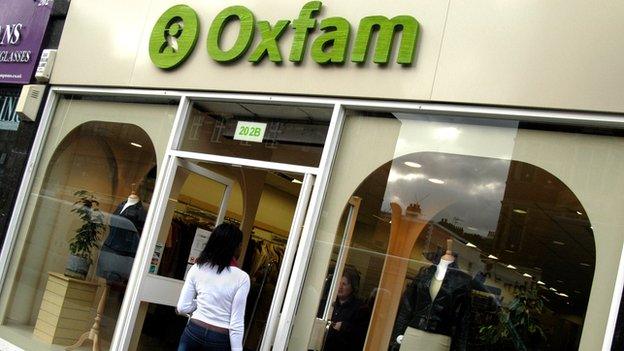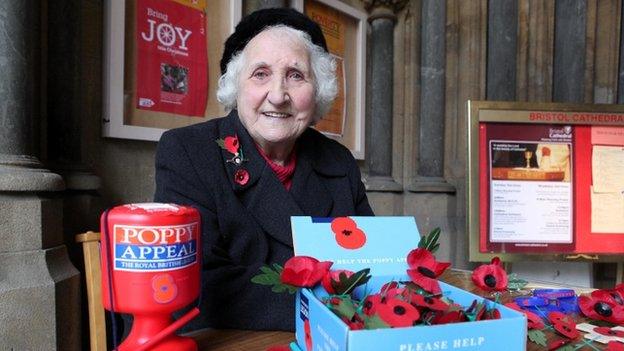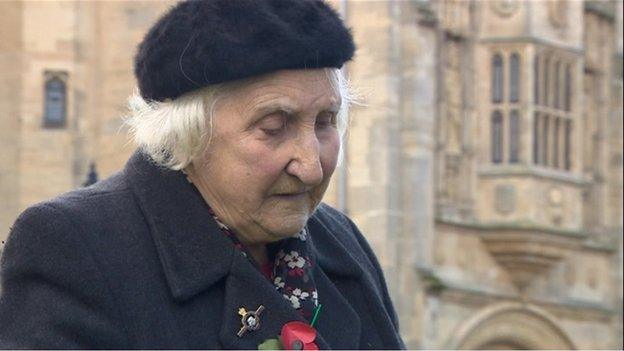Charity funding calls probed by Information Commissioner
- Published
The allegations claim some of the people who received unsolicited calls have dementia and memory problems
Four charities are being investigated by the Information Commissioner amid claims they contacted vulnerable people on an official "opt-out" database.
The NSPCC, British Red Cross, Oxfam and Macmillan Cancer Support are accused of calling people registered with the Telephone Preference Service (TPS), which bars unsolicited sales calls.
The claims were made in a Daily Mail undercover report, external on a call centre.
The charities said they took the claims seriously and were addressing them.
Meanwhile, the Fundraising Standards Board, external said complaints about charity fundraising had risen by 8%.
'Boiler room'
The methods used by fundraisers came under scrutiny earlier this year when 92-year-old poppy collector Olive Cooke killed herself after reportedly being overwhelmed by requests from charities.
She had complained to the Bristol Post last year, external about the pressure she was under - although some friends and family members said a combination of factors including ill health had led to her death.
The Daily Mail sent an undercover reporter to work for three weeks for GoGen, a company based in London used by 40 of the country's biggest charities.
It claimed people with Alzheimer's and other forms of dementia were being treated as legitimate targets for fundraising, as long as they agreed to the call and could answer basic questions over the phone.
The Information Commissioner, Christopher Graham, told BBC Radio 4's Today programme there were "big questions that need to be answered".
He said: "These seem to be very serious allegations and it looks as if something has seriously gone wrong.
"The question of interest for us is: are the charities trading in lists of generous people and are charities taking advantage of people's generosity, or indeed just taking advantage of people full stop?"
"This is a boiler room operation, this is cold calling. We need to get to the facts."

Olive Cooke was one of the UK's longest-serving poppy sellers
GoGen said it denied "many of the claims" and that it did not "make cold calls of any kind" to people who had registered with the Telephone Preference Service.
A spokesman said the company had consulted with the fundraising regulator and "agreed to have the FRSB conduct a thorough investigation into these allegations".
The Fundraising Standards Board's annual report says charities showed an 8% annual increase in complaints, up from 48,432 to 52,389, with 48% coming from charities that reported to the FRSB for the first time in 2014.
The average number of complaints per charity is 39, with major charities averaging 500 complaints, the UK fundraising regulator said.
Its report is an overview of charity fundraising complaints recorded in 2014 by 1,338 FRSB member charities.
Calling suspended
Tim Hunter, Oxfam's fundraising director, said the charity only contacted "those people who have expressed an interest in receiving a call".
"At this time there is no primary evidence to suggest this is not the case, however following these allegations we temporarily suspended all telephone fundraising activity to ensure companies who work on our behalf meet not only the regulatory standards but also our own high moral and ethical standards."
In June last year Oxfam suspended operations with a call centre and a street fundraising organisation after allegations in the Mail on Sunday, which claimed fundraisers used high-pressure techniques.
A Macmillan spokeswoman said it was taking the Daily Mail's claims seriously and was looking into them as a priority.
"We would not hesitate to take robust action if we found our agencies were not acting with utmost integrity on our behalf," she added.
An NSPCC spokesman said it expected the "highest standards of behaviour from everyone who operates under the NSPCC banner".
He added: "Any suggestion of inappropriate activity is deeply worrying and we would want any concerns to be raised with us immediately so that they can be quickly addressed."
And a British Red Cross spokeswoman said it would never knowingly ask for donations from someone with Alzheimer's or other forms of dementia, and further measures were being put in place to ensure best practice is followed at all times.
"We will fully co-operate with any investigation," she said.
- Published7 June 2015

- Published16 May 2015

- Published15 May 2015
